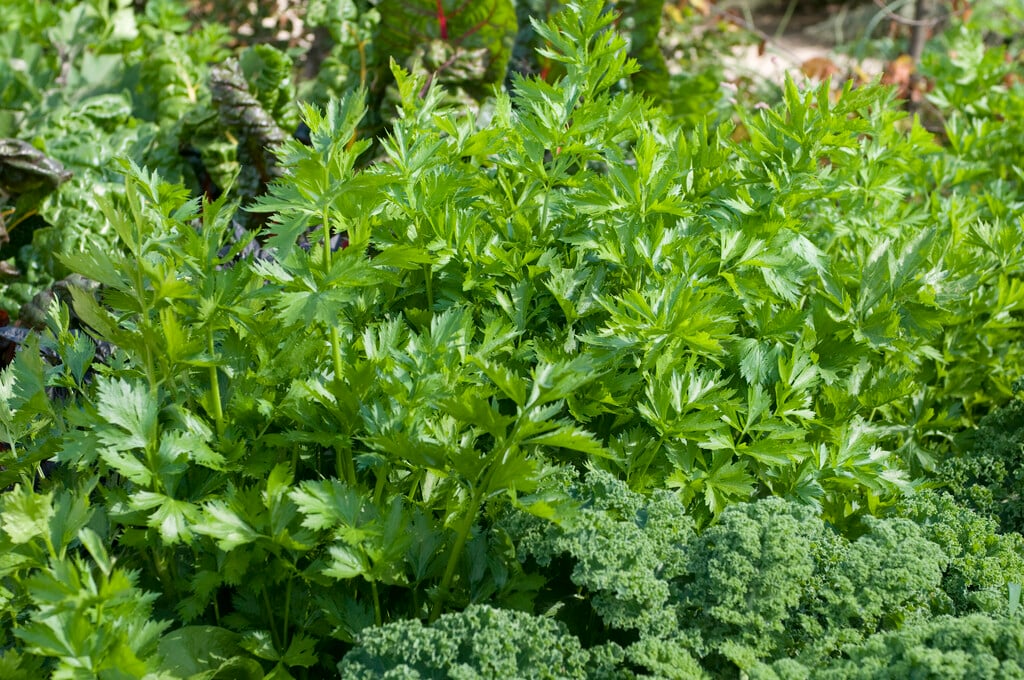Apium graveolens var. rapaceum
celeriac
Cultivated variety of celery, grown for its knobbly, swollen edible stem. Celeriac is usually pale white, reaching up to 12cm in diameter. It is very hardy and reliable winter crop. Many cultivars are available, with some that are less prone to premature flowering (bolting). Green, aromatic leaves form a bunch-like rosette above the swelling. If left to flower, umbels of tiny, pale-white flowers are held on upright, ribbed stems
Size
Ultimate height
0.1–0.5 metresTime to ultimate height
1–2 yearsUltimate spread
0.1–0.5 metresGrowing conditions
Moisture
Moist but well–drainedpH
Acid, Alkaline, NeutralColour & scent
| Stem | Flower | Foliage | Fruit | |
| Spring | Green | |||
|---|---|---|---|---|
| Summer | Green | |||
| Autumn | White | Green | ||
| Winter | White |
Position
- Full sun
Aspect
East–facing or North–facing or South–facing or West–facing
Exposure
Sheltered Hardiness
H6Botanical details
- Family
- Apiaceae
- Native to GB / Ireland
- No
- Foliage
- Semi evergreen
- Habit
- Columnar upright
- Potentially harmful
- Harmful to skin with sunlight. Wear gloves and other protective equipment when handling
- Genus
Apium can be annual, biennial or perennial herbaceous plants, with leaves divided into three leaflets, or pinnate; in summer, tiny white flowers are borne in umbels
- Name status
Correct
How to grow
Cultivation
Grow in moist, rich soil in full sun. Will grow well in heavy and clay soils. Exposure to cold temperatures in spring may lead to premature flowering. For more advice see celeriac cultivation
Propagation
Propagate by seed. See sowing vegetable seeds or sowing seeds indoors for further advice
Suggested planting locations and garden types
Pruning
No pruning required
Pests
May be susceptible to slugs and snails and and celery leaf miner
Diseases
May be susceptible to celery leaf spot
Get involved
The Royal Horticultural Society is the UK’s leading gardening charity. We aim to enrich everyone’s life through plants, and make the UK a greener and more beautiful place.
